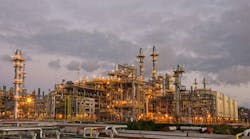In its latest Global Fuels Outlook, ESAI Energy projects global demand for transportation fuels to rise by more than 1 million b/d in 2019 after increasing by just 800,000 b/d in 2018. This acceleration will be driven by a recovery in gasoline and diesel demand growth.
Gasoline demand growth will more than double next year, ESAI Energy said. The turnaround in the gasoline market will be particularly pronounced in Brazil and China. In Brazil, where gasoline demand has fallen by roughly 100,000 b/d this year because of an increase in hydrous ethanol (E100) due to favorable economics, demand is expected to return to growth next year.
Meanwhile, global diesel demand growth will accelerate by 40% in 2019, as consumption in China and Saudi Arabia recovers, according to ESAI Energy.
Chinese diesel demand, which is set to contract by 80,000 b/d this year due to the implementation of stricter environmental policies, will recover next year, ESAI Energy said. Similarly, in Saudi Arabia, where demand has been declining since 2016 because of a combination of fiscal austerity and the phaseout of subsidies for industrial inputs, consumption is expected to rise slightly next year.
Despite accelerating gasoline demand, increases in refinery output, particularly east of Suez, will far outstrip demand and exert bearish on gasoline spreads to crude in 2019. Diesel spreads will face similar downward pressure in the first half of 2019, as refining capacity increases in the Middle East.
But, in the lead-up to the implementation of the International Maritime Organization’s (IMO) 0.5% sulfur cap on marine fuels during the second half of 2019, diesel spreads will strengthen. “Diesel gets bailed out by the IMO change in the second half of 2019,” according to energy analyst Ian Page.

